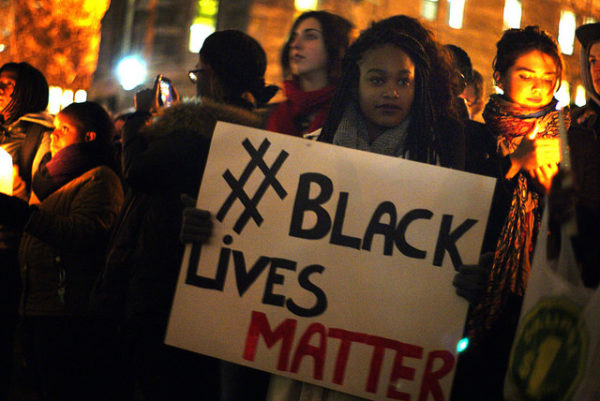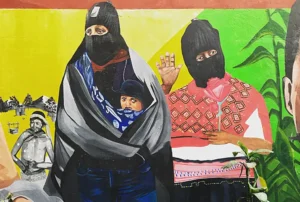
December 15, 2016; Ars Technica
The #BlackLivesMatter movement, along with other civic groups, often comes under cyberattacks, both from explicit opponents and from those just tagging along.
We know that civic social movements come in for criticism from groups that oppose their missions. The Black Lives Matter group is a prime example: there are plenty of opposition movements like #AllLivesMatter, #BlueLivesMatter, and extreme groups like white nationalist movements. Social advocacy groups understand that fighting hate groups is a part of the deal.
However, a subtler form of aggression has recently caused problems for nationwide advocacy groups like Black Lives Matter, and that is cyberattacks.
Cyberattacks can take the form of basic DDoS attacks, which make requests on a server until it is overloaded and can no longer handle its web traffic, denying access to legitimate visitors. More sophisticated cyberattacks continue to be developed, usually with similar results: the denial of access to a site by confusing or overloading its host server.
Black Lives Matter was targeted by a group called Ghost Squad, which bills itself as “anti-racist.” (Ghost Squad has also targeted the Ku Klux Klan.) They argued that BLM was promoting racism against white people, and demanded a statement categorically stating that “all hate is wrong.” The attacker claimed that “individuals in the BLM movement were acting no better [than the KKK].”
Sign up for our free newsletters
Subscribe to NPQ's newsletters to have our top stories delivered directly to your inbox.
By signing up, you agree to our privacy policy and terms of use, and to receive messages from NPQ and our partners.
Dr. Gabriella Coleman, an anthropologist and an expert on groups like Ghost Squad, explained that part of the problem is that these attacks “happen in silence.” In the case of this attack on BLM, it was hard to stop misinformation without knowing the source, and harder still to defend their share of cyberspace without knowledge of the attacker. It’s difficult, obviously, to identify cyberattackers, and from the outside, attacks can just look like a temporary server failure, which can happen for perfectly legitimate reasons.
Black Lives Matter actually had to upgrade to a new host, a service called eQualit.ie, shortly after it launched its national advocacy site. eQualit.ie specializes in supporting vulnerable civil society and human rights groups, and was prepared with defenses against known types of attacks.
Part of the problem it, it’s not just opposition groups who are targeting advocacy movements. Many smaller attackers gravitate toward a target identified by a larger group, and join the attack just to prove they can. The anonymity of attack encourages hangers-on and limits the negative consequences of cyber warfare for the perpetrators, who don’t necessarily need ideological motivation.
But the cold war tactics of cyberattacks evolve with chilling speed, and as many nonprofit advocacy organizations become more digitally based, it is important to be aware of the threat and to take precautions where possible. As stories of election hacking and international cyberattacks creep into the national consciousness, our awareness of digital peril increases and allies have the opportunity to develop defense tools.
Cyberattacks have been used before to silence organizations, and in this age of increased reliance on digital communication, it is important that we vigilantly guard ourselves and our organizational partners against vulnerability as much as possible.
Whatever the current state of its website, Black Lives Matter has proven that it will not be silenced, that it will keep shouting until the voices of marginalized communities are heard. Its website has withstood over 100 cyberattacks, and its vigilance and active sourcing of committed tech partners like eQualit.ie serves as an example to other vulnerable organizations.—Erin Rubin












